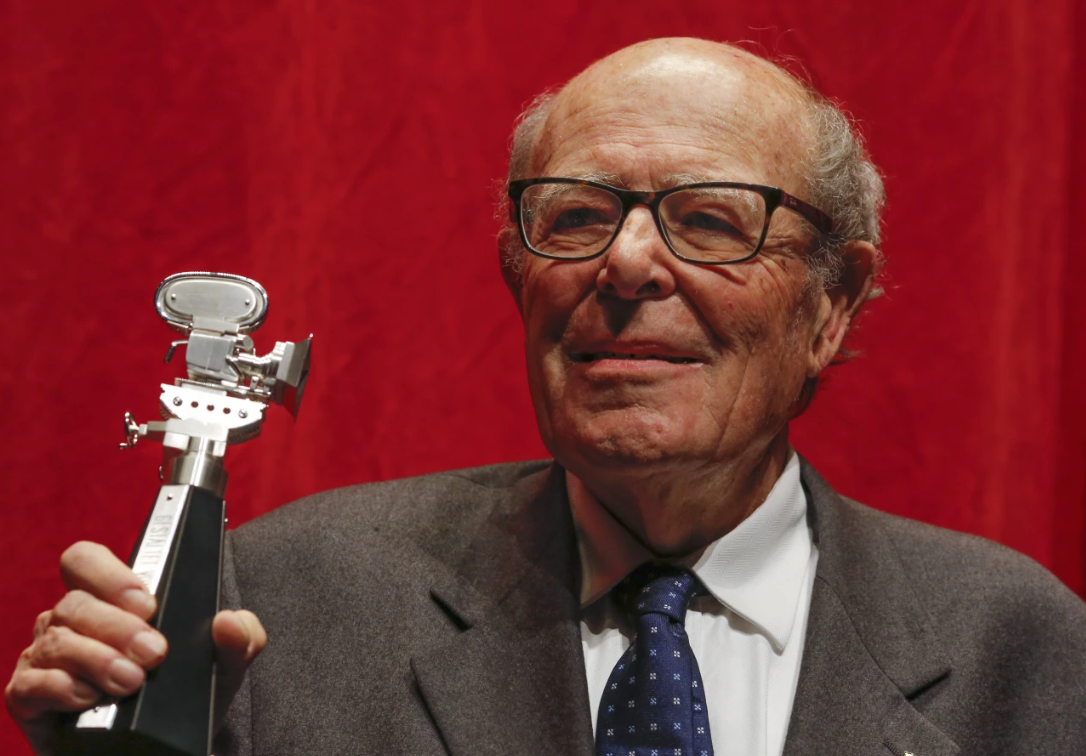Marcel Ophuls, the renowned filmmaker whose groundbreaking 1969 documentary The Sorrow and the Pity challenged the long-held belief that most French citizens had resisted Nazi occupation during World War II, has passed away at the age of 97. Ophuls died peacefully at his home in southwestern France, according to his grandson Andreas-Benjamin Seyfert.
Born in Frankfurt in 1927, Ophuls was the son of famed director Max Ophuls. The family fled Germany for France when the Nazis came to power and later escaped to the United States as World War II escalated. Marcel later became a U.S. citizen and served in the American army in occupied Japan.
While Ophuls earned an Academy Award for his 1988 documentary Hôtel Terminus, which explored the life of Nazi war criminal Klaus Barbie, it was The Sorrow and the Pity that left an indelible mark on history and film. The documentary exposed the uncomfortable truth that many in France had not actively resisted the Nazis, revealing a society marked by fear, opportunism, and complicity rather than unified defiance. The film was controversial and remained banned from French television for over a decade because it dismantled the heroic narrative promoted by Charles de Gaulle, who portrayed the French as a nation of unified resistance.
Filmed in stark black and white without narration or music, The Sorrow and the Pity used raw interviews with ordinary citizens, collaborators, resistance fighters, and Nazi officials to paint a complex portrait of life under occupation. The film showed how French police helped deport Jews, neighbors turned a blind eye, and many simply tried to survive. Its impact extended beyond France, gaining recognition worldwide and even making a memorable cameo in Woody Allen’s Annie Hall.
Ophuls once explained that his film was not meant to accuse France but to reflect on the difficult choices people make in extreme circumstances. He spent much of his life grappling with the legacy of his father, admitting in a 2004 interview that he felt overshadowed by Max Ophuls’s genius.
Initially drawn to fiction filmmaking, Ophuls shifted to documentaries after early projects failed to gain acclaim. This change revolutionized cinema by tackling difficult subjects such as war crimes and moral responsibility. His later works included The Memory of Justice (1976), which explored war crimes trials and drew parallels to contemporary conflicts, and The Troubles We’ve Seen (1994), focusing on journalists covering the Bosnian War.
Despite living in France for most of his life, Ophuls often felt like an outsider — seen as a “German Jew” and someone critical of French society. He embodied contradictions: a Jewish exile married to a former Hitler Youth member, a French citizen never fully accepted, and a filmmaker admired in Hollywood who transformed European cinema by confronting uncomfortable truths.
Marcel Ophuls is survived by his wife Régine, their three daughters, and three grandchildren.













